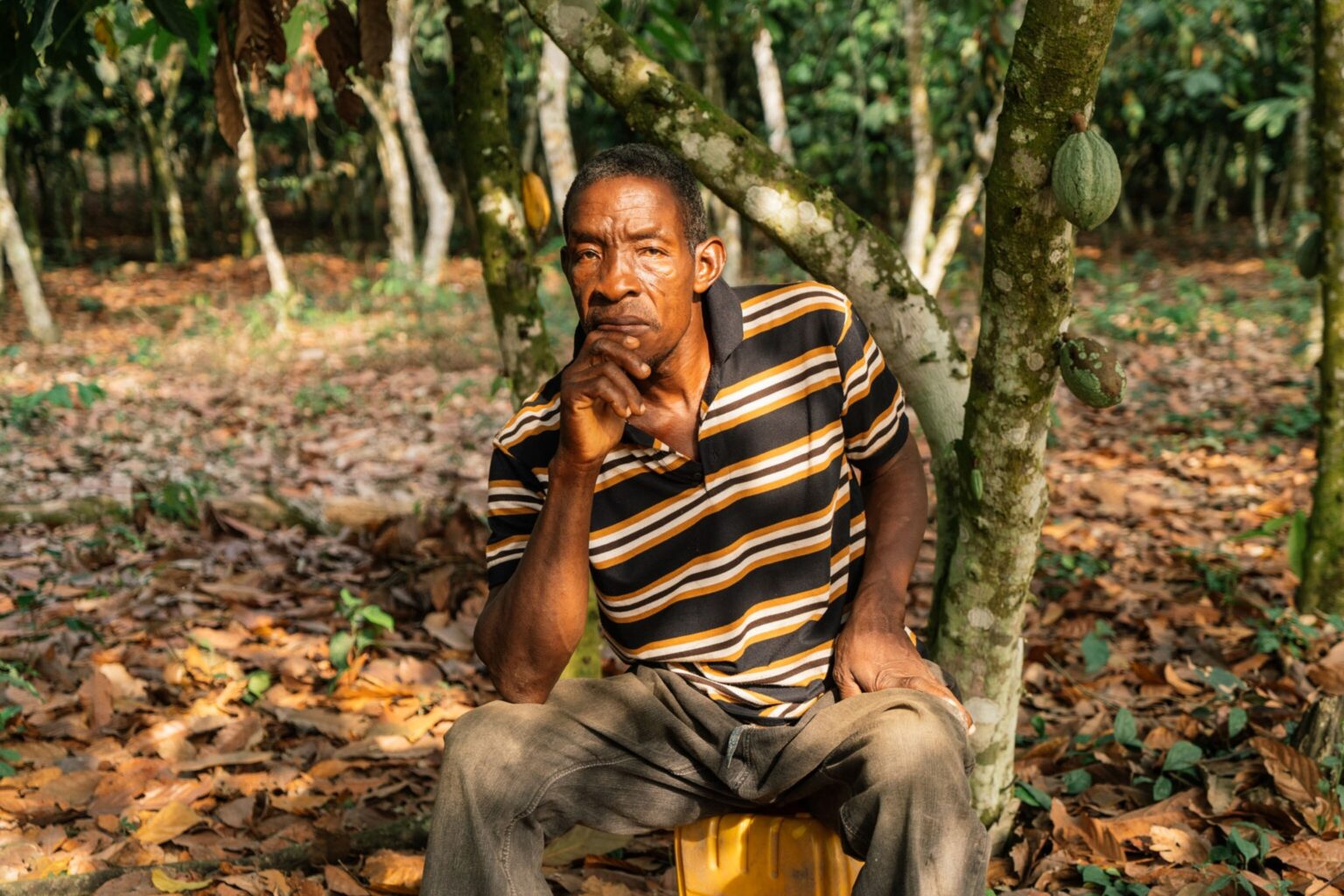- Across Ghana and Ivory Coast, climate change, illegal mining, cocoa industry woes, and a devastating disease known as swollen shoot have conspired to end West Africa’s cocoa supremacy.
- In Ivory Coast, 30% of cocoa plantations are infected by swollen shoot disease. Upto 600,000 hectares under Cocoa in Ghana are infected, too.
- The crisis in West Africa is offering opportunity to Ecuador, Brazil and Peru to become global cocoa production titans.
A double whammy of a devastating disease coupled with unchecked gold mining activities has set up a storm that is fast threatening to kill West Africa’s Cocoa supremacy.
For decades, Ghana and the Ivory Coast have held the mantle of titans in the cocoa world, jointly supplying over 60 per cent of the beans’ global demand. However, this year’s poor harvest as noted by an exclusive piece by Reuters, could spark a seismic shift in the cocoa production industry, causing a huge impact on the chocolate industry across the globe.
Growing at an annual rate of 5.4 per cent, the global chocolate industry is expected to hit $190 billion up from $181.4 billion in 2023.
Root causes of cocoa production decline are manifold
Across Ghana and Ivory Coast, the root causes of cocoa production are manifold. The negative impact of climate change, rampant illegal gold mining activities, cocoa industry mismanagement, and a devastating disease known as swollen shoot have conspired to undermine the productivity of West Africa’s cocoa plantations.
According to exclusive data compiled by Reuters and insights from tens of farmers, experts, and industry insiders, the situation is getting grim by the minute.
In Ghana alone, Cocobod, the national cocoa marketing board, estimates that up to 590,000 hectares of cocoa plantations are infected with swollen shoot, a virus that ultimately renders the trees barren.
“With aging and diseased crops, the challenges look scary,” Boafo, the Cocobod spokesman, told Reuters. “But we’ve critical interventions ongoing to address them.”
“Production is in long-term decline,” said Steve Wateridge, a cocoa expert with Tropical Research Services. “We wouldn’t get the lowest crop for 20 years in Ghana and lowest for eight years in Ivory Coast if we hadn’t reached a tipping point.”
In Ivory Coast, the world’s biggest cocoa producer, Tropical Research Service’s Wateridge says that every three out of 10 cocoa plantations in the country are grappling with the disease.
The implications for these challenges are far-reaching. For instance, futures prices for cocoa in New York have more than doubled this year, hitting record highs amid concerns about a looming shortage of cocoa beans, which is the critical ingredient in making chocolates.
This worrying trend reflects a market in distress, grappling with the reality of dwindling supplies from a region once considered the bedrock of global cocoa production.
End of West Africa’s Cocoa supremacy?
Industry experts are warning that consumers across the world may be experiencing the end of West Africa’s Cocoa supremacy. This is because the challenges being faced are not easily remedied, signaling a potentially irreversible decline. Essentially, the roiling storm is not only likely to hit millions of cocoa farmers in Ghana and Ivory Coast, whose livelihoods are at stake but also for consumers across the world.
Already, according to NielsenIQ, the average price of chocolate in the US has increased by over 10 per cent, a shift that is likely to continue as the impact of this season’s poor harvests ripple through the market.
Additionally, the impact of illegal gold mining, known locally as ‘galamsey’, has been particularly devastating in Ghana. It not only encroaches on valuable agricultural land but also exacerbates the spread of diseases such as swollen shoot, as Cocobod struggles to finance the battle against this disease.
Cocobod adds that illegal gold miners are invading rehabilitated farms, making recovery virtually impossible. Unfortunately, despite huge international financing aimed at rehabilitation, the scale of the crisis far outstrips current measures to combat it.
What’s more, the situation appears to be compounded by broader environmental challenges. Across the region, climate change is forecast to dramatically erode the suitability of West Africa for cocoa production in the coming decades, with rainfall patterns already showing a worrying decline.
This climate change-related environmental degradation threatens to further diminish West Africa’s Cocoa supremacy, rendering vast lands unavailable to grow the bean even as the global demand for chocolate continues to grow.
The crisis in West Africa presents an opportunity for other cocoa-producing regions, notably Latin America, where countries such as Ecuador are poised to ascend to the ranks of global cocoa titans. Both VOICE Network’s Fountain and cocoa expert Wateridge project that Ecuador is set to dethrone Ghana as the world’s second-biggest cocoa producer by 2027. Brazil and Peru are also on a steady rise to the top.
This changing dynamics underscores a pivotal moment in the industry, where the balance of cocoa power may shift away from its traditional heartlands: Ghana and Ivory Coast.
As West Africa grapples with these multifaceted challenges, the global chocolate industry stands at a crossroads. The implication of this shift is profound, not only for farmers in Ghana and Ivory Coast but also for consumers and markets worldwide.
Read also: From cocoa bean to desert wasteland: The environmental toll of chocolate production in Africa
